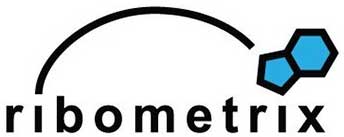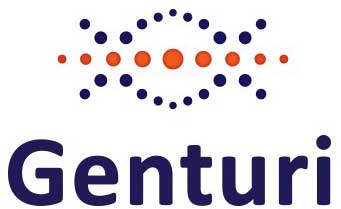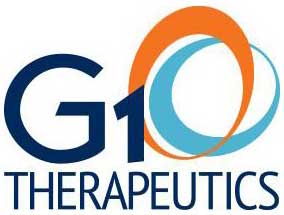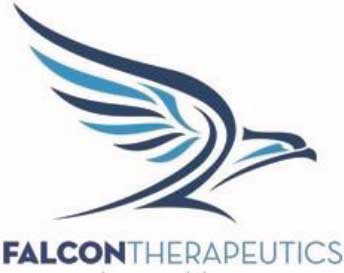The goal of CRV is to unlock the potential of UNC-Chapel Hill technologies and advance the commercialization of these technologies by providing early-stage capital and industry expertise. Beginning in 2016, CRV expects to make three to four investments per year.
Direct Investments
L2 Ventures I
L2 Ventures II
 Target RWE
Target RWE
Target RWE is redefining and revolutionizing the generation and delivery of real-world evidence. Target RWE’s proven real-world data (RWD) solutions are utilized throughout the drug development and commercialization spectrum.
 StartStopMove, Inc. DBA WalletFi
StartStopMove, Inc. DBA WalletFi
WalletFi’s mobile technology allows users to easily identify and move recurring charges, subscriptions, and card-on-file (CoF) payments across cards in their digital wallet. Most importantly, WalletFi reduces customer churn for banks and financial institutions while also increasing Millennial engagement and reinforcing top-of-wallet status.
 Bivarus, Inc.
Bivarus, Inc.
Acquired by Press Ganey Associates in January 2018.
Bivarus is a healthcare IT company that has developed an elegant and efficient patient survey platform to improve quality metrics and drive additional revenue for providers. The Company’s platform enables real-time patient-generated data for administrators to act upon in order to improve their operations as well as patient satisfaction and retention.
 410 Medical, Inc.
410 Medical, Inc.
410 Medical is dedicated to developing innovative products that help emergency clinicians provide better care for critically ill patients. 410 Medical’s first product, LifeFlow, is designed to enhance the speed and efficiency of fluid resuscitation, improving care for patients with life-threatening conditions such as shock and sepsis. LifeFlow received FDA clearance for human use in 2016.
 StrideBio, Inc.
StrideBio, Inc.
StrideBio was founded based on technologies and intellectual property from Dr. Aravind Asokan’s lab at the University of North Carolina at Chapel Hill and Dr. Mavis Agbangje-McKenna’s lab at the University of Florida. Stride is developing engineered viral vectors for gene therapy using structure-inspired design of adeno-associated virus (AAV) vectors that can evade neutralizing antibodies.
 Ribometrix, Inc.
Ribometrix, Inc.
The SHAPE-MaP technology developed in the lab of Dr. Weeks identifies functional motifs within RNA by mapping the RNA three-dimensional structure. By using three-dimensional RNA structure, the platform enables targeting of thousands of previously undruggable RNAs, expanding the druggable genome by 60-fold. Structures acquired from this platform will be used to develop small molecules that bind functional and therapeutically relevant regions of RNA.
 Genturi, Inc.
Genturi, Inc.
Genturi is a genomic sequencing platform company based out of UNC. The technology can sequence large, megabase pair-sized DNA fragments to generate genomic maps for an organism useful in identifying changes to an organism’s genome that indicate disease.
 G1 Therapeutics, Inc.
G1 Therapeutics, Inc.
IPO in May 2017 (NASDAQ: GTHX).
Developer of novel, small-molecule therapies for the treatment of cancer designed to address significant unmet needs in the treatment of cancer. The company’s small-molecule therapies focus on cyclin-dependent kinases and CDKs, a family of proteins that play an important role in the growth and proliferation of cells, enabling the medical industry to treat cancer.
 Falcon Therapeutics
Falcon Therapeutics
Falcon Therapeutics, founded by Shawn Hingtgen, has created a new class of gene modified cell therapy to address the large unmet need of targeting and killing solid tumor cancers. A patient’s own skin cells are converted into Trilogy cells, which possess the unique ability to detect tumor cells, migrate directly to those cancerous cells and then kill them. They target not only cancer cells in the primary tumor, but also metastatic cancers in other areas of the body. The lead indication for human trials is ovarian cancer, while GBM and triple-negative breast cancer are indications that are also included as part of the pipeline
 Inhalon Biopharma, Inc.
Inhalon Biopharma, Inc.
The company, founded by Sam Lai, seeks to advance “muco-trapping” monoclonal antibodies for use in treating and preventing respiratory infections. The platform offers a new mechanism of action, whereby viruses are actively cleared from the lung. Inhalon is actively advancing a number of programs against respiratory infections ranging from RSV, MPV, Influenza and SARS-CoV-2. The first human study is targeted for 2021.
 Altis Biosystems, Inc.
Altis Biosystems, Inc.
Altis Biosystems, founded by Nancy Allbritton, Yuli Wang, Michael Biron, Chris Sims and Scott Magness, has developed a patent-pending human stem cell platform, which recreates both small and large intestinal tissue for drug screening and microbiome research for pharmaceutical and biotechnology companies. Altis’ technology is high-throughput and produces reproducible results to meet the drug research and development demands of the pharma industry. It is meant to replace Caco-2 (cancer) cells, the current industry standard, and reduce the need for animal testing. Their goal is to reduce the time and cost of drug development with a platform that more accurately reflects native human biology.
 IMMvention Therapeutix
IMMvention Therapeutix
IMMvention Therapeutix is a biotechnology company developing novel small molecule pan-inflammasome inhibitors for treating inflammatory diseases. It has a platform technology where it harnesses the immune system via biodegradable biopolymeric nano/micro-particles.
 Sonovascular, Inc.
Sonovascular, Inc.
SonoVascular, Inc., is an early-stage medical technology company developing a multi-mechanistic thrombectomy system for the endovascular treatment of arterial and venous disease, including deep vein thrombosis, pulmonary embolism, peripheral artery occlusion and acute ischemic stroke.
 GeneCentric, Inc.
GeneCentric, Inc.
GeneCentric Therapeutics is applying proprietary technology to identify drug responder populations that enable the development of precision cancer drugs while improving patient outcomes. The Company’s initial approach applies its Cancer Subtype Platform (CSP®) to parse the complexity of tumor biology and generate genomic signatures. This approach yields high-resolution cancer subtypes with the potential to function as universal biomarkers for susceptibility to immune-based, targeted and other therapies. In commercializing its technology through strategic collaborations with pharmaceutical and biotech companies, GeneCentric is defining responder populations based on subtypes throughout the drug development cycle.

